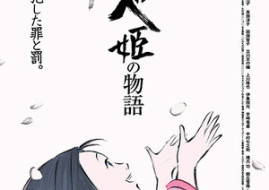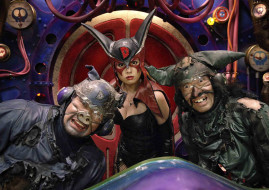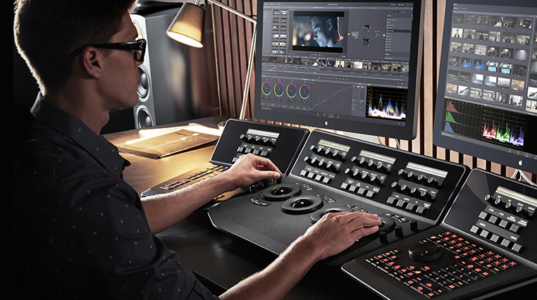Seijun Suzuki
 Director Seijun Suzuki has been making films for nearly 50 years now, and while his pace has slackened from that of earlier days, he shows no signs of stopping. As a contract director for Nikkatsu during the “golden age” of Japanese film, Suzuki directed as many as six films a year. Quota quickies made to fill the bottom half of a double-bill or even just to capitalize on the success of a hit pop song, they met with little notoriety until Suzuki began rebelling against his bosses in an attempt to make his movies more interesting. He began to employ various theatrical tricks, wild color schemes, and a disjointed sense of narrative and setting (he was a pioneer of nonlinear plotting), and his films became stranger and more unique. By the mid-sixties it was clear that Nikkatsu’s B-movie director had a clear and innovative vision: unique genre pictures like TOKYO DRIFTER, YOUTH OF THE BEAST, GATE OF FLESH, and ELEGY TO VIOLENCE stood testament to it.
Director Seijun Suzuki has been making films for nearly 50 years now, and while his pace has slackened from that of earlier days, he shows no signs of stopping. As a contract director for Nikkatsu during the “golden age” of Japanese film, Suzuki directed as many as six films a year. Quota quickies made to fill the bottom half of a double-bill or even just to capitalize on the success of a hit pop song, they met with little notoriety until Suzuki began rebelling against his bosses in an attempt to make his movies more interesting. He began to employ various theatrical tricks, wild color schemes, and a disjointed sense of narrative and setting (he was a pioneer of nonlinear plotting), and his films became stranger and more unique. By the mid-sixties it was clear that Nikkatsu’s B-movie director had a clear and innovative vision: unique genre pictures like TOKYO DRIFTER, YOUTH OF THE BEAST, GATE OF FLESH, and ELEGY TO VIOLENCE stood testament to it.
In 1967, following the creation of Suzuki’s most surreal film to that date, a fractured, mindbending journey into the head of a killer-for-hire known as BRANDED TO KILL, Nikkatsu gave him the ax. “We don’t need a director who makes movies that make no sense and no money,” said Nikkatsu’s president; he was wrong on both counts. Suzuki took his former employers to court for wrongful dismissal. He won his case, but it proved to be a hard-earned victory: no studio would touch Suzuki after the scandal. He turned to commercial directing and fiction writing to make ends meet. He would not direct another film in the next ten years.
In 1979, following a disastrous attempt at a comeback film (the ill-conceived STORY OF GRIEF AND SORROW, about a professional woman’s tennis player and her rather ordinary problems), Suzuki found financing with independent theater producer Genjiro Arato. Together they made ZIGEUNERWEIZEN, screening it themselves in a specially-designed mobile air tent in Tokyo. The film was an overnight sensation, getting a theatrical wide-release and garnering Suzuki best picture and best director at the Japanese equivalent of the Academy Awards. It is to this day featured in the Encyclopedia of Japan as an exemplary film.
Back on the map, Suzuki quickly began a second project with Arato, MIRAGE THEATRE. Suzuki began working as an actor and producer, but he returned to directing with YUMEJI. Made with producer Genjiro Arato, it became the final chapter in a thematically-related trilogy set in the Taisho Period (the era prior to Japan’s military buildup and its invasion of Manchuria—the era of Suzuki’s childhood). Besides their thematic significance, the films were also a stylistic departure for Suzuki. Longer than his quota quickies (which never exceeded 90 minutes), Suzuki had a much larger swath of time to use to cover his stories. The plots are thicker, more complex than in his earlier work, and their themes echo and recur from film to film within the trilogy. For the second film, MIRAGE THEATRE, he developed a film performance style, based on the movement and mannerism of Kabuki theater, the likes of which many had never seen before.
In 2001 we saw the completion of PISTOL OPERA, Suzuki’s 47th feature film. Employing the innovative kabuki-style of acting he developed during the production of MIRAGE THEATRE, PISTOL OPERA is perhaps Suzuki’s most extreme film to date, abandoning not only setting and time sequence, but also plot. Forty-six years after his first directorial effort, Seijun Suzuki is still pushing the envelope of contemporary filmmaking.
© Images Courtesy of Littlemore2 Productions
Select Filmography:
Pistol Opera 2001
Marriage 1993
Yumeji 1991
Lupin III: Legend of Babylon 1985
Mirage Theatre 1981
Zigeunerweizen 1980
Branded to Kill 1967
Tokyo Drifter 1966
Elegy to Violence 1966
Carmen From Kawachi 1966
Story of A Prostitute 1965
Tattooed Life 1965
Gate of Flesh 1964
Flowers and the Angry Waves 1964
Wild Beast of Youth 1963
Detective Bureau 23: Go To Hell, Bastards! 1963
Bad Boy 1963
Teen Yakuza 1962
Those Who Bet On Me 1962
New Wind Over The Mountain 1961
Million Dollar Match 1961
Reckless Boxx 1961
Man with the Hollow-Tip Bullets 1961
Go to Hell, Youth Gangs! 1961
Bloody Channel 1961
Tokyo Knights 1961
Everything is Crazy 1960
Passport to the Underworld 1959
Love Letter 1959
The Spring That Didn’t Come 1958
Nude Girl With A Gun 1957
Eight Hours of Horror 1957
Floating Hotel 1957
Town of Devils 1956
Singing Rope: Innocent Love at Sea 1956
Cheers At The Harbor: Triumpgh In My Hands 1956
Resources:
MidnightEye Suzuki Interview
Related Posts
« Christopher Dolye (Cinematography) Bas Scheffers: Choosing a Camera »





















